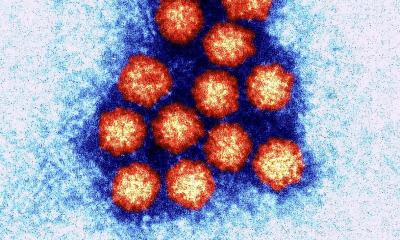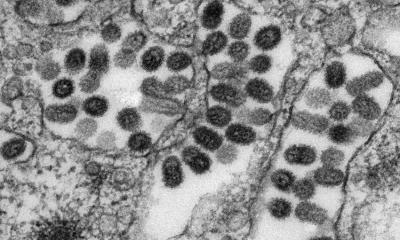Chronic Viral Infection
Inflammation triggers unsustainable immune response
Scientists at the University of Basel discovered a fundamental new mechanism explaining the inadequate immune defense against chronic viral infection. These results may open up new avenues for vaccine development.
In the course of an infection or upon vaccination, specialized cells of our immune system, so-called B cells, produce antibodies that bind viruses and inactivate them. In the context of chronic viral infections such as HIV or hepatitis C virus, however, antibody production by B cells is quantitatively inadequate and starts too late.
A team of scientists headed by Prof. Daniel Pinschewer at the Department of Biomedicine, University of Basel, reports that the inadequate antibody response to chronic viral diseases is due to the strong inflammatory reaction upon infection. While most pronounced at the onset of an infection, inflammation can persist for decades, especially in HIV/AIDS.
Hasty immune response lasts only short-term
Under the influence of inflammatory messengers, so called interferons, B cells produce as many antibodies as they possibly can. Unfortunately, this hasty response occurs at the expense of sustainability. B cells that turn on antibody production too quickly lose their potential to proliferate and die shortly thereafter. As a consequence, the immune response takes an impetuous start but subsides rapidly.
The scientists assume that this panic reaction of B cells reflects a mechanism ensuring an optimized response to acute life threatening infections. In the context of chronic infections, however, the battle is not decided within a matter of days, but rather only after months or years. Under these circumstances, the hasty reaction of our body seems inappropriate and may actually favor the virus.
Cornerstone for new vaccines
For viral diseases such as HIV or hepatitis C protective vaccines remain unavailable. The scientists are hopeful that the discovery of this fundamental mechanism may provide a basis to improve vaccination strategies against chronic viral diseases.
Original article
Fallet et al.: Interferon-driven deletion of antiviral B cells at the onset of chronic infection; Sci. Immunol. 1, eaah6817 (2016) | doi: 10.1126/sciimmunol.aah6817
Source: University of Basel
24.10.2016







